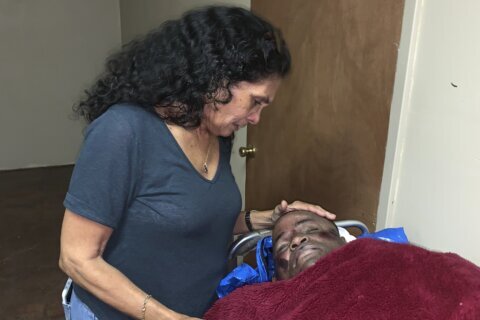NEW ORLEANS (AP) — A federal judge and court appointed monitors hired to oversee reform of the New Orleans Police Department said Wednesday that the long-troubled agency could reach full compliance this year after a nearly decade-old court-backed overhaul of its policies and practices.
“I’m proud of how far NOPD has come,” U.S. District Judge Susie Morgan, who approved the agreement in 2013 — following a highly critical 2011 investigation and report by the U.S. Justice Department.
Morgan tempered her praise with acknowledgment of continuing problems, including the short-handed department’s slowdown in recruiting and allegations of wrongdoing by officers who work private duty details arranged through the department. But the department’s has shown transparency in dealing with such setbacks, Morgan said. She spoke as Superintendent Shaun Ferguson and about two dozen members of his command staff sat in the courtroom with Justice Department officials.
The reform agreement, embodied in a court document called a consent decree, was welcomed by department critics when it was negotiated during former Mayor Mitch Landrieu’s administration. They said it was needed for a department that had been plagued by recurring scandals involving corruption or questionable use of force for decades.
But the consent decree had its critics as well, including police officer representatives who said it hampered police work. Over the years police organizations have cited restrictions on car chases and searches of suspects, along with officers’ fears of stepped up discipline if they breach even minor regulations.
The reform agreement was reached after scandals following Hurricane Katrina brought renewed, harsh scrutiny on the police department.
Levees failed and most of the city flooded when Katrina hit in 2005. In the days of chaos that followed, police shot unarmed civilians at the Danziger bridge, killing two; and an unarmed man was shot by one officer and his body burned in a car by another.
A 2011 report by the U.S. Justice Department painted a picture of a department in which officers often used deadly force without justification, repeatedly made unconstitutional arrests, and engaged in racial profiling. Poor recruiting, ignorance or disregard of unclear policies, and inconsistent discipline all were cited as reasons for the dysfunction.
The agreement with the Justice Department was reached the following year and approved by the court in 2013.
Copyright © 2024 The Associated Press. All rights reserved. This material may not be published, broadcast, written or redistributed.







